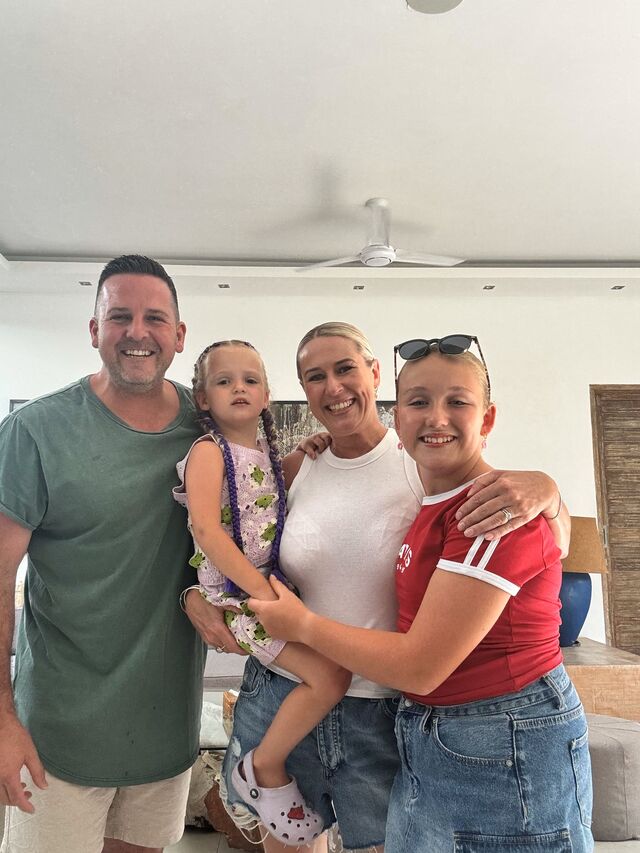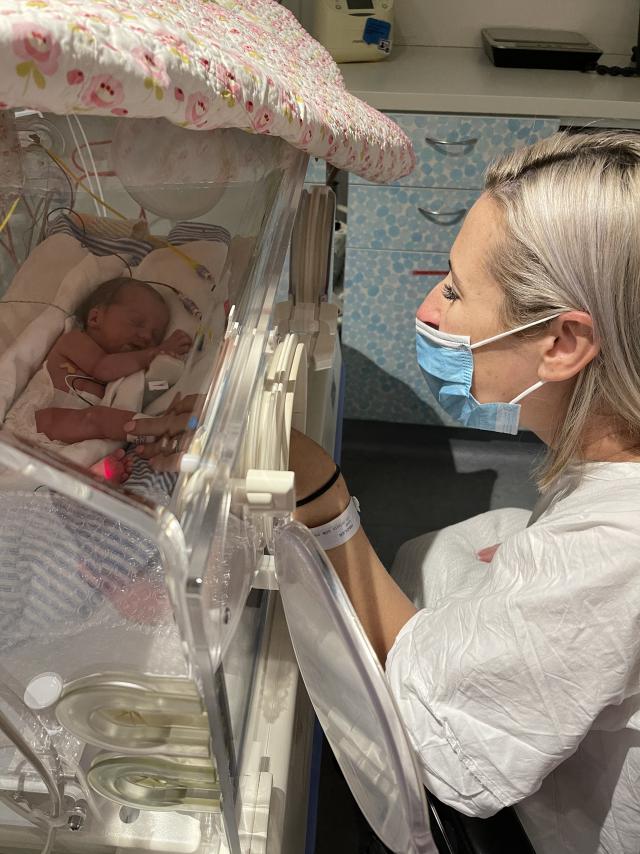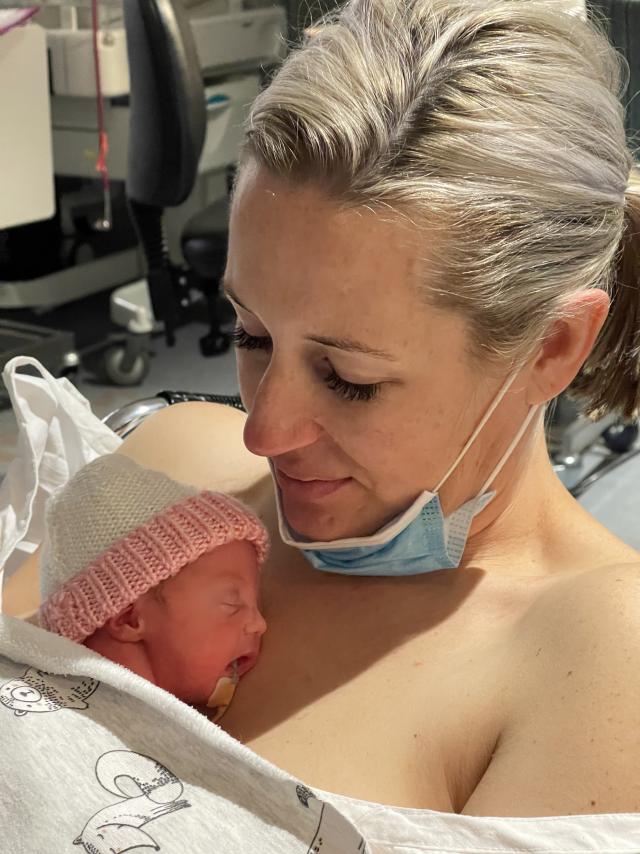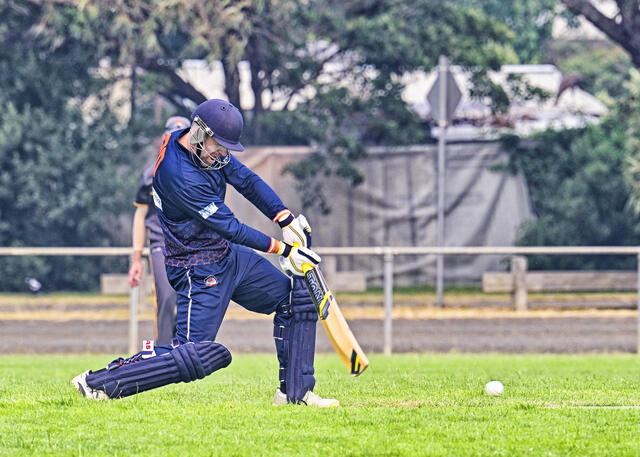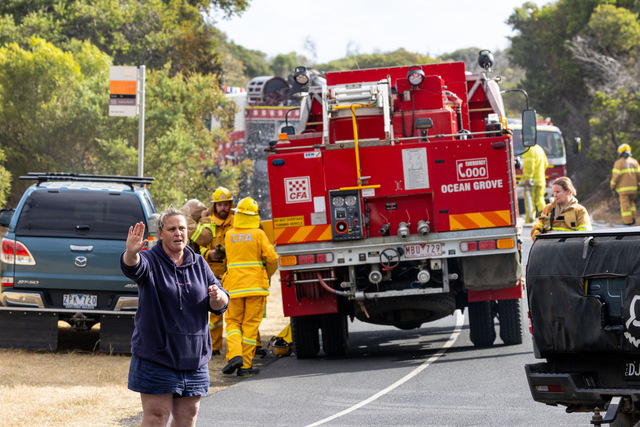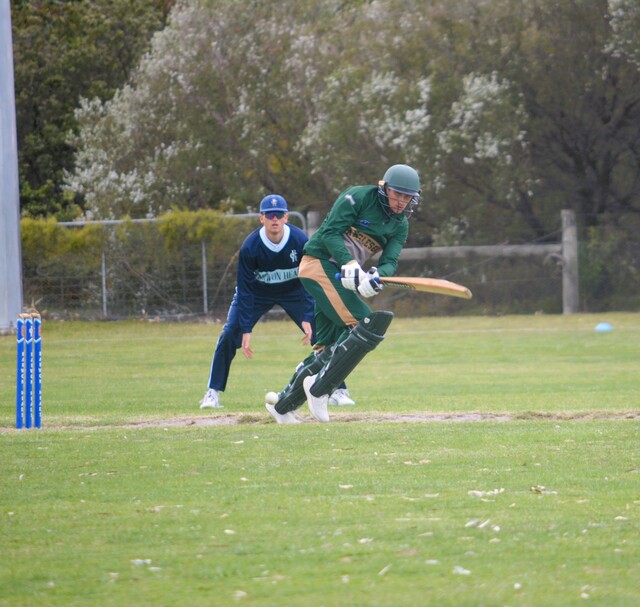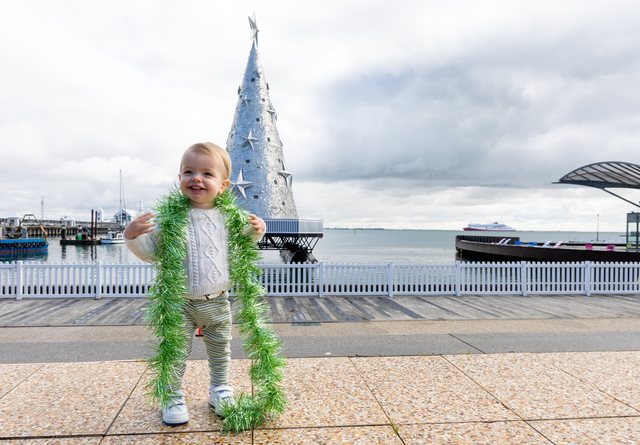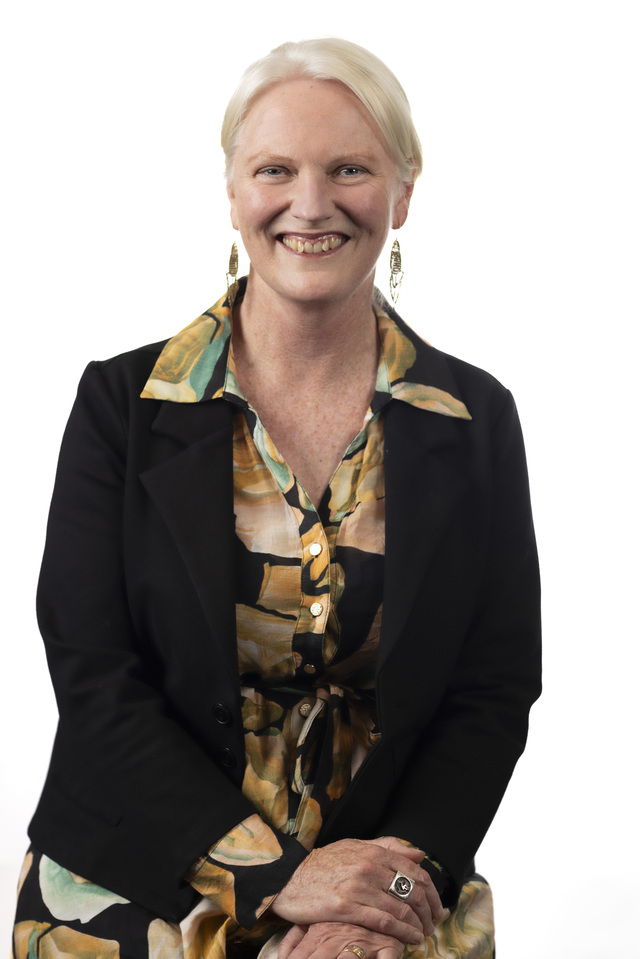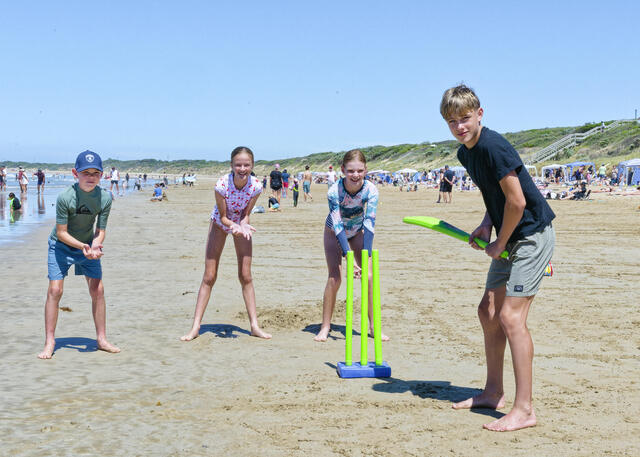Geelong’s Luci Hadler, 43, gave birth to her daughter Coco only 29 weeks into her pregnancy. She speaks with Jena Carr about the challenges of giving birth prematurely.
Everything about Luci Hadler’s, 43, pregnancy over three years ago was going normally until she hit the 29-week mark.
The Geelong mother didn’t initially have many issues with her pregnancy, despite being classed as high risk due to her age of 39 at the time, until events led to the early birth of daughter Coco Deppeler on May 10, 2021.
“It was a completely normal pregnancy, and I was healthy and not sick at all. I was perfectly fine… until my water broke at 29 weeks and five days into my pregnancy,” Luci said.
“It was a Saturday morning, and I went straight into hospital… I still had no signs of labour, and I felt perfectly fine, but I was hospitalised immediately after my water broke.
“The same thing happened with my older daughter, who was born nine years earlier. I was 36 weeks pregnant when I had her, so it was a much safer pregnancy. So, I definitely knew what was going on.”
After being hospitalised in Geelong, Luci was transferred to Mercy Hospital for Women in Heidelberg so she could be near a neonatal intensive care unit (NICU).
“I was an inpatient there until Coco was born at 31 weeks. Doctors had to keep a close eye on me because the risk of infection was a lot higher,” she said.
“She was born at 1537 grams, so she was tiny. We were very lucky, though, that she was born in good condition and had no other issues apart from her prematurity.
“She spent the first week in NICU at special care in Melbourne before she was transferred to Barwon Health, and she spent the next six weeks there in special care nursery in Geelong.”
Preterm labour begins before the 37th week of pregnancy, with babies born before this time more likely to need help with breathing and keeping warm, according to Barwon Health.
Luci said the concerning pregnancy and birth of her daughter was a “stressful time” for her and her husband as they were away from home.
“My husband, from the first time I was hospitalised, also got accommodation in Melbourne. So, he was close by, but that was on a night-by-night booking,” she said.
“I finished work six weeks earlier than I planned to finish. I planned to work up until about 37 weeks, but I had to finish work abruptly, so I didn’t have a lot of annual leave banked up.
“I was lucky with the couple weeks of annual leave that I did have, but that was still about seven weeks of working and pay that I missed out on because I had to finish work straight away.
“I did get the 18 weeks of paid parental leave after Coco was born, but it was still seven weeks less than I had with my baby at home, which is what you’d expect from a normal pregnancy.
“The bills still needed to be paid, and you still need to keep a household running at home, so costs are just an extra stress that you’ve got on top of the emotional side of having a prem baby.”
Coco has come a long way since being born prematurely, and Luci said that “you would never know she was a prem baby”.
“She’s going to be four in May, which is exciting. She’s very active and talkative and she goes to daycare four days a week. She’s in three-year-old kinder this year and she’s loving that,” she said.
More than 48,000 babies require specialised care for premature or sick births each year in Australia, according to the Miracle Babies Foundation.
Co-founder and chief executive Kylie Pussell said there was a need for the federal government to provide more support and paid leave for parents.
“For parents of premature and sick babies, the NICU journey is not just emotionally and physically exhausting as it can also be financially devastating,” she said.
“Up to half of NICU parents will experience mental health challenges, yet the current government Paid Parental Leave entitlements do not reflect the unique and complex needs of these families.
“Many of these parents are using their paid parental leave whilst their baby is in hospital, placing higher financial pressure on them to return to work earlier than their peers who had a full-term, healthy baby.
“A critical care payment for the time spent in NICU should be made available through additional paid parental leave for neonatal (the first 28 days of a newborn infant’s life) families.
“We firmly believe all babies should be discharged from hospital with the same paid parental leave entitlements, so we are calling for an additional paid leave to support parents when a baby is born prematurely or in hospital for over two weeks, during the most critical care period in hospital.”

